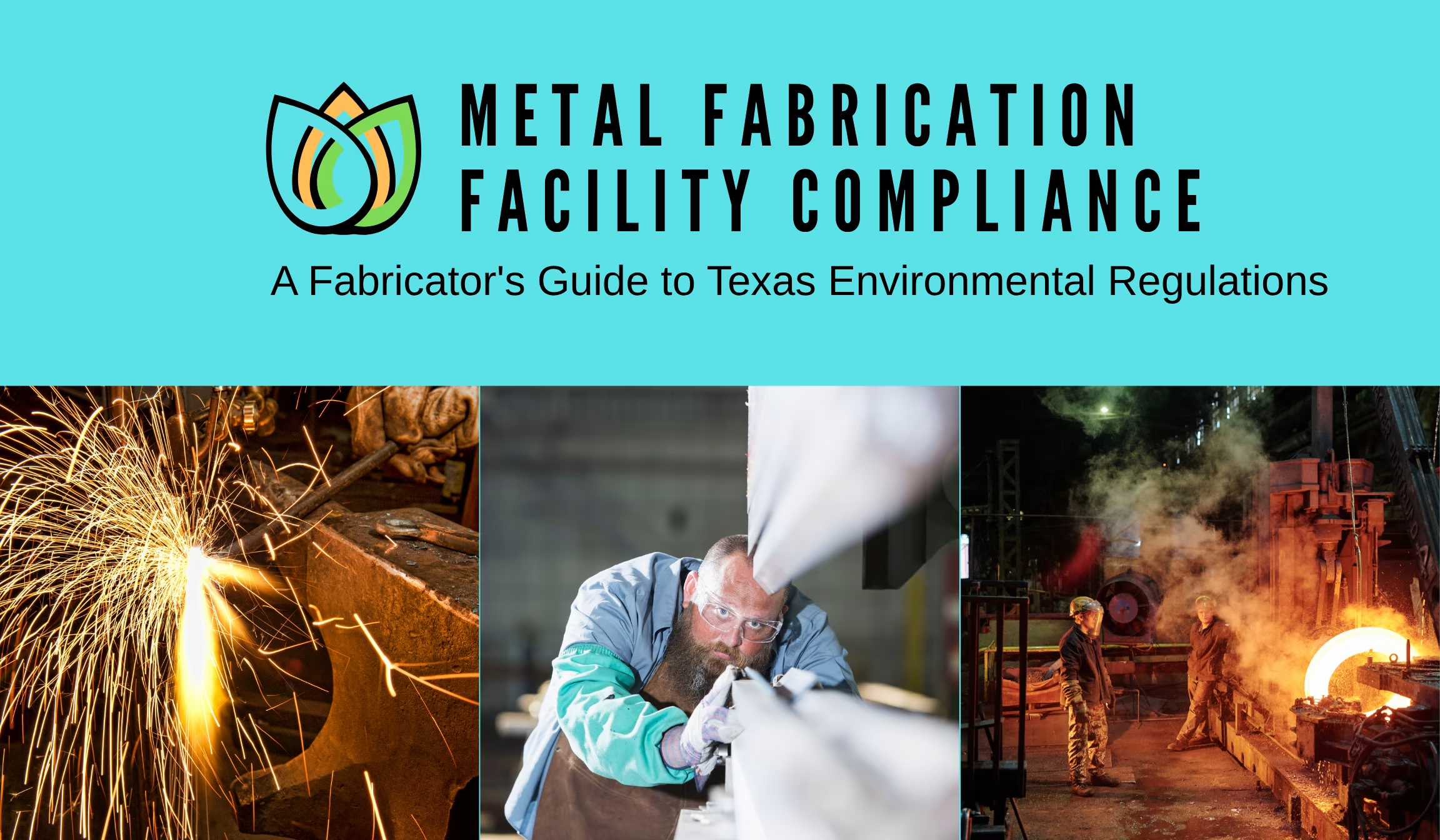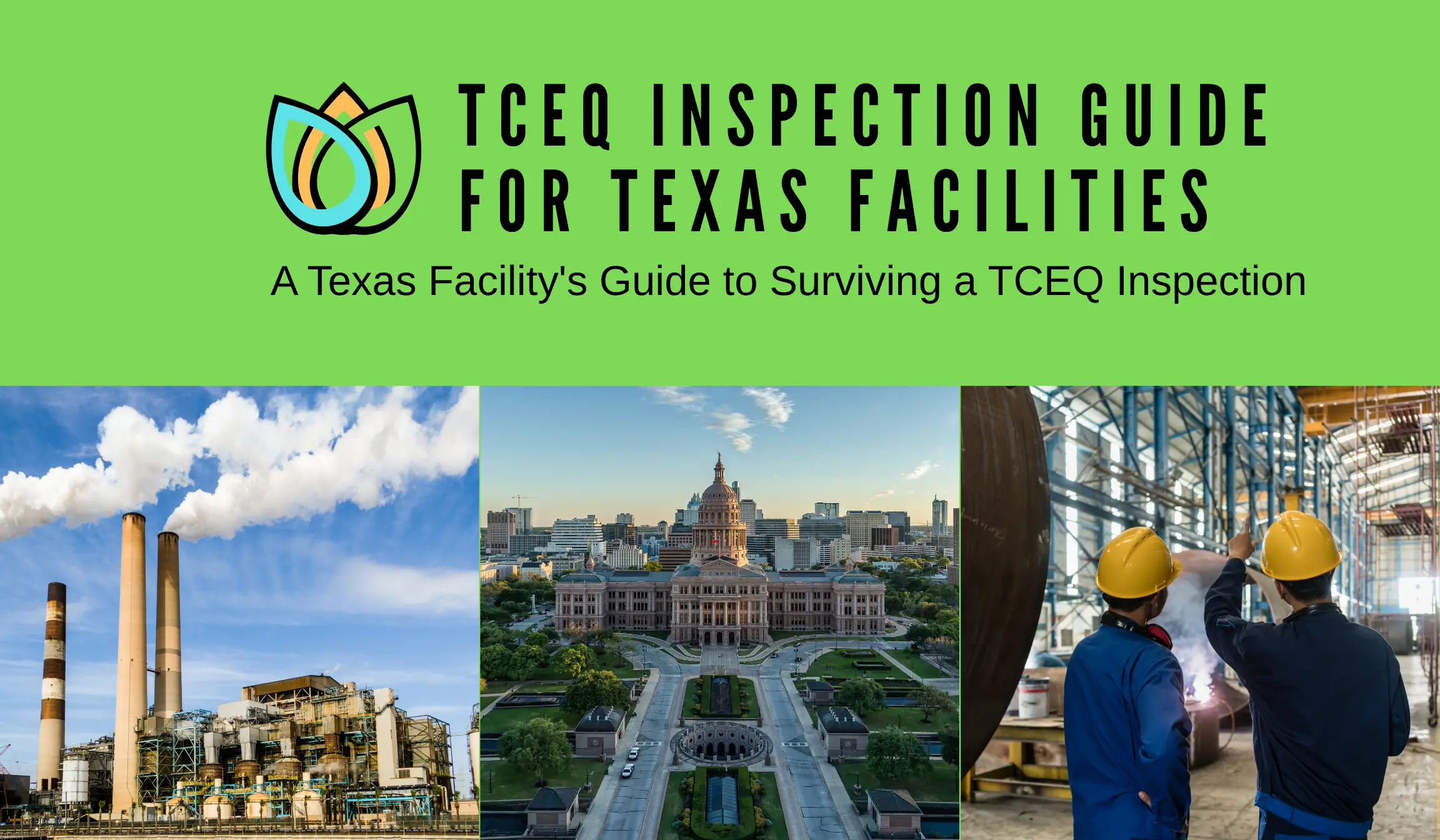Definitive 2025 Compliance Guide
TCEQ Concrete Batch Plant Regulations: The Complete Texas Guide
From the new 6-year permit reviews to complex setback rules and SWP3 mandates, we break down everything you need to know to stay compliant and avoid costly fines.

Need a Personalized Checklist?
This guide covers the general rules, but every plant is unique. Get a personalized compliance checklist tailored to your specific plant type and location with our free interactive tool.
Launch Interactive GuideIs Your Plant Permanent or Temporary?
The Critical First Step
Before diving into specific permits, you must answer one fundamental question: Is your concrete batch plant considered permanent or temporary? The answer determines your entire regulatory path, from the type of authorization you need to how you manage relocations.
🏢Permanent Plant
- Scope/Purpose
- Serves a general market from a fixed location long-term.
- Permitting Path
- Requires a full Standard Air Permit with public notice.
- Operational Limits
- Operates indefinitely at one site.
🏗️Temporary Plant
- Scope/Purpose
- Supplies concrete for a single, specific construction project.
- Permitting Path
- Often eligible for a streamlined Permit by Rule (PBR).
- Operational Limits
- Operates only for the project's duration (max 180 days) and is mobile.
Mastering Air Quality
The 2025 TCEQ Standard Permit
Air quality is the TCEQ's top priority for concrete batch plants due to the potential for particulate matter (PM), or dust, to affect surrounding communities. A major update is now fully in effect, bringing a much shorter review timeline.
NOW: 2024 Standard Permit is Mandatory
All new applications, major amendments, and permit renewals must now use the 2024 CBP Standard Permit and the corresponding PI-1S-CBP Form.
Sept. 1, 2025: 6-Year Review Cycle Begins
Senate Bill 763 slashes the permit review cycle from 10 years to 6 years. This means more frequent and intense scrutiny from the TCEQ.
Jan. 24, 2026: FINAL Transition Deadline
All plants, even those on older permits, must be fully compliant with all requirements of the new 2024 permit. This may require upgrading dust control technology.
Decoding Setback Requirements
A Visual Guide
Setback distance is one of the most frequently cited violations. The required distance from your emission sources to your property line is not one-size-fits-all; it depends on your location, production rate, and the level of dust control technology you employ.
TCEQ Setback Distances (Permanent Plants)
| Production Rate (CY/Hour) | Standard Controls (feet) | Enhanced Controls (feet) |
|---|---|---|
| ≤ 120 | 200 ft | 100 ft |
| 121 - 240 | 300 ft | 150 ft |
| 241 - 360 | 440 ft | 220 ft |
| In Harris County? | All distances must be ≥ 440 feet, regardless of production or controls. | |
Source: TCEQ Standard Permit for Concrete Batch Plants (2024). "Enhanced Controls" typically refers to a three-sided enclosure for truck loading operations. Always verify specific requirements for your site.
Building a Bulletproof Stormwater Program
Your SWP3 Checklist
Uncontrolled runoff from your site is a major violation. The TCEQ requires strict management of both industrial process water (from truck washouts, etc.) and stormwater that comes into contact with materials under the TPDES General Permit No. TXG110000. Your Stormwater Pollution Prevention Plan (SWP3) is a living document and your primary defense against water-related violations.

Avoid Common Stormwater Fines
An incomplete or poorly maintained SWP3 is one of the easiest ways to get a violation. Learn how to prevent the most common stormwater mistakes.
See Common ViolationsTop 3 Most Common TCEQ Violations
(And Their Cost)
Based on recent TCEQ enforcement data, a few key areas consistently trip up plant operators. Focusing on these can provide the biggest return on your compliance investment.
Analysis of TCEQ enforcement data for concrete batch plants, 2023-2024. Fines are representative and can vary significantly.
The Digital Mandate
Navigating Reports in STEERS
The era of paper submissions is over. The State of Texas Environmental Electronic Reporting System (STEERS) is the official online portal for nearly all interactions with the TCEQ. Your facility must be proficient in using STEERS for various submissions.
Key STEERS Submissions
Action Item
Ensure multiple personnel are trained on STEERS and have active accounts to avoid compliance gaps due to staff turnover or absence. A single point of failure here can lead to missed deadlines.
Preparing for a TCEQ Inspection
A Proactive Checklist
An unannounced visit from a TCEQ investigator can be stressful, but being prepared can make all the difference. The checklist below highlights what inspectors look for first.

Go Deeper: Survive Your Next Inspection
This checklist is just the start. For a detailed walkthrough of the inspection process and what to do when an investigator arrives, read our full guide.
Read the TCEQ Inspection GuideFrequently Asked Questions
What is the difference between a Standard Permit and a Permit by Rule (PBR)?
A Standard Permit is a comprehensive air quality permit required for permanent concrete batch plants. A Permit by Rule (PBR) is a streamlined authorization for temporary plants serving a single project.
What are the most common sources of dust at a concrete batch plant?
The most common sources are vehicle traffic on unpaved roads, loading aggregate, wind erosion from stockpiles, and transferring cement/fly ash. Effective dust control for these is a primary focus of TCEQ regulations.
How often do I need to conduct stormwater inspections?
Under the TPDES Multi-Sector General Permit (TXG110000), facilities must conduct and document routine visual inspections quarterly and a comprehensive site inspection annually.
What should I do if I receive a Notice of Violation (NOV)?
Do not ignore it. The NOV will detail the alleged violations and a response timeframe. Your response should include a corrective action plan. It is highly recommended to consult with an environmental professional.

Navigate Compliance with Confidence
Peace Environmental has served over 50 concrete batch plants across Texas. From facilities facing regulatory pressure to those just needing a hand with day-to-day compliance, we tailor our solutions to your specific needs.
Contact Us for a Free Consultation

